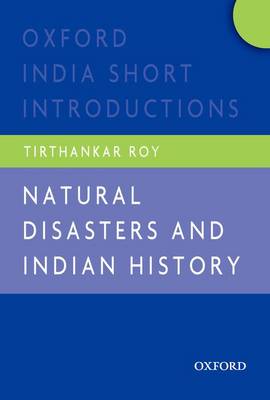Oxford India Short Introductions
1 total work
This short and exploratory study is the first to engage with a social and economic history of natural disasters in India. Based on the study of a number of events that occurred in colonial India between 1770 and 1935, the author argues that the impact of natural disasters requires a graded sense of time.
The book draws on three themes-market, politics, and knowledge, roughly corresponding to three time scales-the short, the medium, and the long run, respectively. These frame the case studies of famines, earthquakes, and storms covered in the book. These studies illustrate that disasters become devastating events by impairing the capacity of the state and civil society; they create gainers and losers; and they destroy cooperation. Yet, as the author points out, disasters have also enabled new
understandings of nature, state, and society, on the basis of which useful new knowledge could grow.
The book draws on three themes-market, politics, and knowledge, roughly corresponding to three time scales-the short, the medium, and the long run, respectively. These frame the case studies of famines, earthquakes, and storms covered in the book. These studies illustrate that disasters become devastating events by impairing the capacity of the state and civil society; they create gainers and losers; and they destroy cooperation. Yet, as the author points out, disasters have also enabled new
understandings of nature, state, and society, on the basis of which useful new knowledge could grow.
